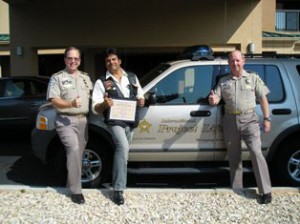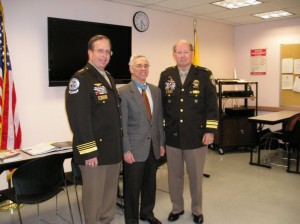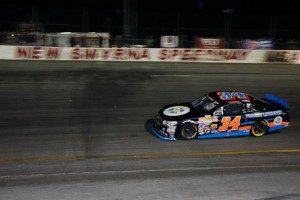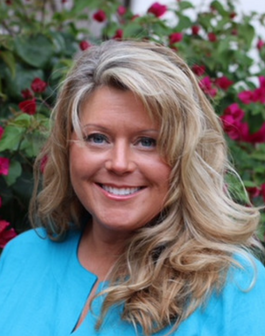 A native of Media, Pennsylvania, Yeaw graduated from Penncrest High School in 1961. He received his Bachelor of Arts degree with honors in Economics from Grove City College in northwest Pennsylvania in1965. His 50-year professional career is highlighted by his 30 years of service in the U.S. Navy, where he completed three operational platoon combat tours to the Republic of Vietnam with SEAL Team Two. He subsequently filled such positions as chief of staff of the Joint Special Operations Command in Fort Bragg, N.C., and commanding officer of both Underwater Demolition Team 21 and SEAL Team Six, the world’s premier commando force, which killed Osama bin Laden and rescued Captain Phillips from the Somali pirates in the Maersk Alabama lifeboat. He served two tours in the Pentagon on the Special Operations staffs of the Secretary of Defense and the Joint Chiefs of Staff. He earned a master’s degree in National Security Affairs from the Navy Postgraduate School, attended the Navy War College, and was the president of his class at the National War College. Yeaw retired as a captain in 1995 after having been awarded 45 medals and ribbons, including the Defense Superior Service Medal, the Navy Legion of Merit, two Defense and three Navy Meritorious Service medals, the Vietnamese Cross of Gallantry, seven Vietnam Campaign medals, nine individual commendation medals with the Combat “V” for valor, including four Bronze Stars and the Purple Heart for multiple fragmentation grenade wounds.
A native of Media, Pennsylvania, Yeaw graduated from Penncrest High School in 1961. He received his Bachelor of Arts degree with honors in Economics from Grove City College in northwest Pennsylvania in1965. His 50-year professional career is highlighted by his 30 years of service in the U.S. Navy, where he completed three operational platoon combat tours to the Republic of Vietnam with SEAL Team Two. He subsequently filled such positions as chief of staff of the Joint Special Operations Command in Fort Bragg, N.C., and commanding officer of both Underwater Demolition Team 21 and SEAL Team Six, the world’s premier commando force, which killed Osama bin Laden and rescued Captain Phillips from the Somali pirates in the Maersk Alabama lifeboat. He served two tours in the Pentagon on the Special Operations staffs of the Secretary of Defense and the Joint Chiefs of Staff. He earned a master’s degree in National Security Affairs from the Navy Postgraduate School, attended the Navy War College, and was the president of his class at the National War College. Yeaw retired as a captain in 1995 after having been awarded 45 medals and ribbons, including the Defense Superior Service Medal, the Navy Legion of Merit, two Defense and three Navy Meritorious Service medals, the Vietnamese Cross of Gallantry, seven Vietnam Campaign medals, nine individual commendation medals with the Combat “V” for valor, including four Bronze Stars and the Purple Heart for multiple fragmentation grenade wounds.
Following his Navy career, Yeaw served seven years with the multi-million-dollar Research Planning Corporation professional services firm in Falls Church, Virginia. His service included duty as a program manager, director of the marketing department and vice-president of the Installations Operation division. Following his relocation to Florida, Yeaw concluded his professional career in 2015 following 13 years with the G4S Professional Armed Security Corporation, including service as the site security manager for two upscale gated residential communities.
In 2012 Yeaw was recognized as a Distinguished Graduate of Penncrest High School and was inducted into the Rose Tree Media School District Hall of Fame. In 2017 he was presented with the Jack Kennedy Memorial Alumni Achievement Award by Grove City College.
Yeaw was recognized as a Project Lifesaver International ambassador in 2017 and was appointed as the director of ambassador relations in 2020. He lived with his wife, Shelley, in Port St. Lucie, Florida, which enabled him to attend PLI headquarters’s weekly meetings. He was the proud father of twin children and two grandchildren.
Year Recognized: 2017

 Estrada won the hearts of fans across the world during his six years on the TV series “CHiPs.” Since then he has made numerous TV and motion picture appearances, yet the role he enjoys most is that of a role model to children throughout the world (
Estrada won the hearts of fans across the world during his six years on the TV series “CHiPs.” Since then he has made numerous TV and motion picture appearances, yet the role he enjoys most is that of a role model to children throughout the world ( If Jack Jacobs wanted a challenge, he certainly had one in 1966. He had a bachelor’s degree from Rutgers University, a wife and a daughter, and no money. He had been through ROTC, and his plan was to enter active duty to earn a regular paycheck, then attend law school when his three-year Army commitment was finished. He volunteered immediately for airborne duty. A year later, Lieutenant Jacobs was in Vietnam as a adviser to a Vietnamese infantry battalion in the Mekong Delta. He had wanted to deploy with his unit, the 82nd Airborne Division, and when he asked the Army why he had been chosen for the frustrating job of adviser, he was told it was simply because he had a college degree.
If Jack Jacobs wanted a challenge, he certainly had one in 1966. He had a bachelor’s degree from Rutgers University, a wife and a daughter, and no money. He had been through ROTC, and his plan was to enter active duty to earn a regular paycheck, then attend law school when his three-year Army commitment was finished. He volunteered immediately for airborne duty. A year later, Lieutenant Jacobs was in Vietnam as a adviser to a Vietnamese infantry battalion in the Mekong Delta. He had wanted to deploy with his unit, the 82nd Airborne Division, and when he asked the Army why he had been chosen for the frustrating job of adviser, he was told it was simply because he had a college degree. SCOTT HECKERT NASCAR K&N PRO SERIES EAST DRIVER BECOMES A PROJECT LIFESAVER AMBASSADOR
SCOTT HECKERT NASCAR K&N PRO SERIES EAST DRIVER BECOMES A PROJECT LIFESAVER AMBASSADOR “We are truly grateful to Scott and the rest of the Turner Scott Motorsports team for their support of Project Lifesaver. It is an honor to see the Project Lifesaver logo prominently displayed during the 2014 NASCAR racing season on the #34 Turner Scott Motorsports Chevy. We greatly appreciate both Scott and the Turner Scott Motorsports support and we are privileged to be part of Scott’s amazing journey. PLI will continue to support Scott and his team throughout his career,” said CEO/Founder, Gene Saunders of Project Lifesaver International.
“We are truly grateful to Scott and the rest of the Turner Scott Motorsports team for their support of Project Lifesaver. It is an honor to see the Project Lifesaver logo prominently displayed during the 2014 NASCAR racing season on the #34 Turner Scott Motorsports Chevy. We greatly appreciate both Scott and the Turner Scott Motorsports support and we are privileged to be part of Scott’s amazing journey. PLI will continue to support Scott and his team throughout his career,” said CEO/Founder, Gene Saunders of Project Lifesaver International. After 30 years in healthcare, working throughout the United States in the senior housing industry, Botonis’ life and career trajectory was forever changed when a close family member was stricken with Alzheimer’s disease. When the grandfather who had served as her primary paternal influence for more than 40 years began losing access to the memories that made up his life story, she knew she had to do something to help. She had spent time in hundreds of communities with thousands of families while working in more than 30 states during her three-decade career in healthcare. Her everyday work at the national level alongside families coping with the impact of Alzheimer’s disease and dementia, as well as countless medical and healthcare professionals specializing in these diseases, offered unparalleled opportunities to learn from their collective expertise.
After 30 years in healthcare, working throughout the United States in the senior housing industry, Botonis’ life and career trajectory was forever changed when a close family member was stricken with Alzheimer’s disease. When the grandfather who had served as her primary paternal influence for more than 40 years began losing access to the memories that made up his life story, she knew she had to do something to help. She had spent time in hundreds of communities with thousands of families while working in more than 30 states during her three-decade career in healthcare. Her everyday work at the national level alongside families coping with the impact of Alzheimer’s disease and dementia, as well as countless medical and healthcare professionals specializing in these diseases, offered unparalleled opportunities to learn from their collective expertise.